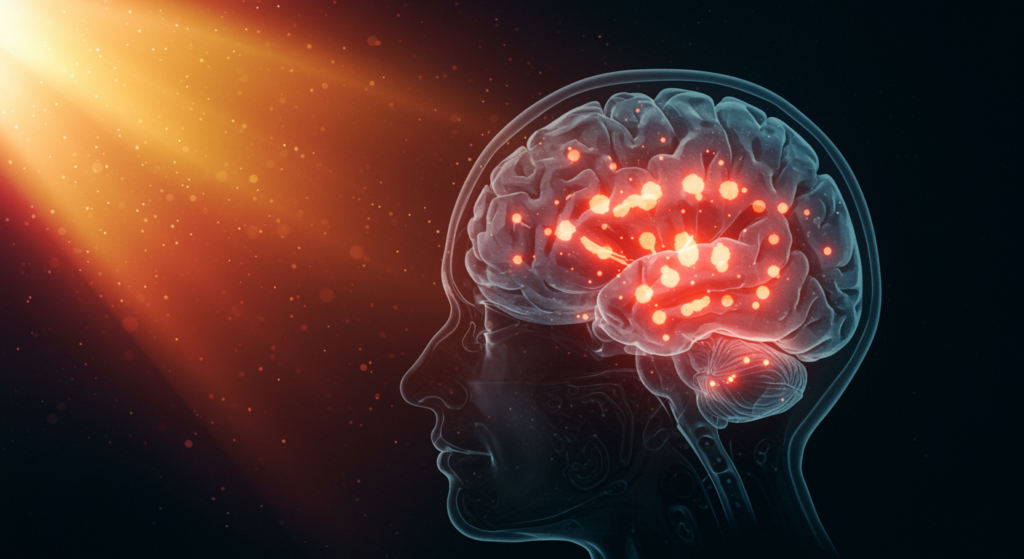
AI Enables Early Detection of Multiple Sclerosis Progression
Introduction to AI’s Role in MS
Imagine a world where catching the subtle shifts in a chronic condition like multiple sclerosis (MS) happens before it fully takes hold— that’s the promise of AI early detection of multiple sclerosis progression. MS is a relentless disease that disrupts the central nervous system, affecting over 2.8 million people globally, and early intervention can make all the difference in managing it effectively. With artificial intelligence (AI) stepping in, we’re seeing faster, more accurate ways to spot disease changes, paving the path for tailored treatments that could slow its advance and enhance quality of life.
The Ongoing Challenge of Spotting MS Progression Early
For many, MS starts as relapsing-remitting multiple sclerosis (RRMS), with flare-ups of symptoms like fatigue or vision problems, followed by quieter periods. But as time passes, it can evolve into secondary progressive MS (SPMS), where symptoms steadily worsen without relief. What if we could identify this transition sooner? Right now, doctors often miss this shift by about three years, leaving patients on the wrong treatments and missing key opportunities to intervene. Have you ever thought about how a delay in diagnosis could impact someone’s daily life?
This lag in detection stems from relying on traditional methods, like periodic exams and MRI scans, which might not catch the finer details. A study from a leading source highlights how this delay risks suboptimal care, emphasizing the need for tools that can analyze patterns more precisely.
How AI is Revolutionizing Early Detection in MS
AI early detection of multiple sclerosis progression is changing the game by sifting through mountains of data to uncover hidden trends that human eyes might overlook. Machine learning algorithms and deep learning techniques are now processing clinical records and imaging results with remarkable speed, offering neurologists a head start on predicting and managing the disease.
Building AI Models from Real Patient Experiences
Researchers at Uppsala University have developed an AI model using data from more than 22,000 patients in the Swedish MS Registry, achieving about 90% accuracy in differentiating between RRMS and SPMS. This isn’t just theoretical— it’s based on everyday data like neurological checks, MRI scans, and treatment histories, making it easy to weave into regular clinic routines.
- AI examines ongoing MRI and clinical data to spot emerging patterns.
- It flags potential shifts in MS subtypes with a helpful confidence score.
- Clinicians can use this to make informed decisions, almost like having an extra set of expert eyes.
Think about a patient named Sarah, who noticed subtle changes in her mobility. With AI analyzing her scans, doctors caught the progression early, adjusting her therapy and potentially preventing further decline.
Measuring AI’s Success in Spotting Early MS Changes
A comprehensive review of 28 studies involving over 4,300 patients shows AI models excelling in early MS detection, with sensitivity at 89% and specificity at 91%. Techniques like convolutional neural networks (CNNs) shine when paired with MRI data, often outperforming other methods by identifying disease markers at the earliest stages.
| AI Model or Approach | Sensitivity | Specificity | Area Under Curve (AUC) |
|---|---|---|---|
| MRI with CNNs | 89% | 91% | 0.96 |
| Other methods like OCT/DTI | 85-87% | 88-90% | 0.93-0.95 |
These figures aren’t just numbers; they translate to real hope for patients. If you’re someone affected by MS, this kind of precision could mean getting the right support before symptoms escalate.
Real-World Benefits: Tailoring Treatment with AI Insights
When AI early detection of multiple sclerosis progression kicks in, it opens doors to personalized care that can truly make a difference. Patients might start the right therapies sooner, slowing the disease and boosting their overall well-being.
- Timely Action: Early alerts allow for quick treatment starts, which could preserve function and extend independence.
- Customized Plans: Doctors can avoid trial-and-error with medications, reducing side effects and focusing on what works best.
- Efficient Resources: Health systems save by targeting interventions where they’re needed most, and AI helps spot candidates for cutting-edge trials.
For instance, a hypothetical scenario: John, a middle-aged MS patient, uses AI-monitored data to adjust his routine, incorporating exercises that support his specific needs— a simple step that could enhance his daily life.
AI’s Edge in Neuroimaging for MS
AI doesn’t just process data; it dives deep into neuroimaging to reveal invisible changes, like early lesion formation or brain atrophy, often before they cause noticeable problems. This technology standardizes readings, cutting down on human error and ensuring consistent monitoring.
Practical Uses in Imaging for Early MS Detection
- Automatically spotting new lesions on MRI scans.
- Measuring brain volume changes over time.
- Predicting how well treatments might work based on key biomarkers.
Looking ahead, AI is exploring remyelination— the body’s way of repairing nerve coatings— which could help evaluate new therapies. A study from a trusted source suggests this could be a game-changer for long-term MS management.
Advantages for Patients and Healthcare Teams
Bringing AI into the mix smooths out the MS journey for everyone involved. It speeds up diagnoses, guides treatment tweaks, and lightens the load of unnecessary tests.
- Quicker detection means less waiting and more proactive care.
- AI’s insights help refine therapies, improving patient comfort.
- For older adults, it distinguishes MS effects from normal aging, which is invaluable as we all navigate life’s later stages.
If you’re a caregiver or patient, consider asking your doctor about AI tools— they might offer peace of mind and better outcomes.
Navigating Challenges in AI for MS Care
While exciting, AI early detection of multiple sclerosis progression isn’t without hurdles. High-quality data is essential for reliable results, and issues like privacy must be handled with care to build trust.
- Ensuring data accuracy to avoid misleading predictions.
- Addressing ethical concerns, like keeping patient info secure.
- Training staff to integrate AI smoothly into daily practice.
The good news? Global efforts are tackling these, focusing on AI that supports doctors rather than replacing them.
What’s Next: AI Leading the Way in MS Innovations
The future of MS care is bright with AI at the helm, refining models to include genetics, wearables, and more for a fuller picture. This could lead to real-time monitoring and true precision medicine.
- AI tools might track MS progression daily, adapting treatments on the fly.
- Linking with health records could reveal broader trends and fill care gaps.
- Sharing anonymized data worldwide will sharpen these tools even further.
As research evolves, AI early detection of multiple sclerosis progression stands to transform lives— what advancements are you most excited about?
Wrapping Up: A New Era for MS Management
AI early detection of multiple sclerosis progression is more than a technological leap; it’s a beacon of hope for better, more personalized care. By catching changes early and supporting informed decisions, it helps patients live fuller lives. If this resonates with you, share your experiences in the comments or explore more on how tech is reshaping health— let’s keep the conversation going.
References
Here are the sources referenced in this article:
- [1] “AI Model Enhances Early Diagnosis of Multiple Sclerosis.” News-Medical. Link
- [2] PMC Article on MS Data. Link
- [3] Neurology Journal Study. Link
- [4] PMC Neuroimaging Research. Link
- [5] Life Technology on AI Predictions. Link
- [6] PMC on MS Biomarkers. Link
- [7] PMC on AI in MS Care. Link
- [8] Neurology Live on AI and Aging. Link
AI early detection of multiple sclerosis progression, Multiple Sclerosis, AI in MS, early MS diagnosis, MS progression monitoring, machine learning for MS, personalized MS treatment, AI diagnostics, neurology AI, MS research







